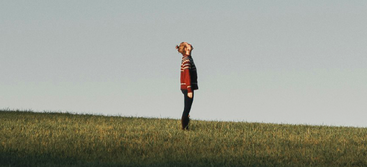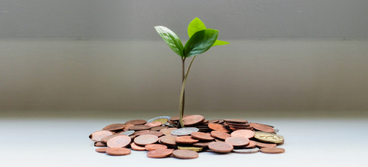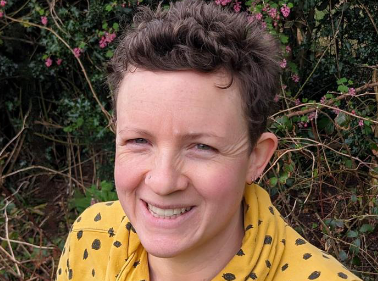


Shape the Future of Sustainable Economies.
Shape the Future of Sustainable Economies.
Learn to create fair, resilient, and sustainable economic systems for communities and the planet.



Redesign economies for a thriving future
Create resilient, ethical, and regenerative economic systems that benefit both people and the planet.
The GEDS Economic Dimension Course equips you with practical tools and frameworks to rethink how economies function. Explore circular economies, ethical finance, and localisation strategies to design systems that prioritise equity, resilience, and ecological health. Learn how to implement sustainable economic solutions in your community, business, or organisation.


photo: Gary Barnes
Key Skills
Design economic systems that put people and the planet first
Apply post-growth and regenerative financial models to real-world challenges
Develop local and circular economies that strengthen community resilience
Integrate cooperative and ethical business practices into organisations and enterprises
Understand the relationship between money, value, and sustainability to create long-term solutions
Key Questions Explored in This Course
How can we create economies that benefit both people and the planet?
What are the alternatives to mainstream capitalist systems, and how can they be successfully implemented?
How can we shift from a scarcity mindset to an abundance-based perspective?
What role does money play in shaping society, and how can we redefine its impact?
How can communities reclaim control over their economies and resources?
Real-world impact: What past participants have achieved
Social Enterprises & Cooperatives ▸ Graduates have launched ethical businesses that prioritise people and the planet.
Circular Economy Initiatives ▸ Participants have designed local systems that reduce waste and promote resource reuse.
Community Currencies ▸ Some have introduced local currencies to strengthen regional economies and increase financial resilience.




The Economic Dimension in Gaia’s 4D Framework
Gaia’s Economic Dimension integrates with ecological, social, and worldview aspects to create a balanced, sustainable future.


Economic
Foster equitable, resilient economies.
Social
Strengthen collaboration and community bonds.
Ecological
Restore and regenerate natural systems.
Worldview
Shift mindsets for a sustainable future.



Go beyond a single dimension.
Enrol in the full GEDS course to integrate all four dimensions and create systemic change.



Course details
Course format:
Online, interactive modules. /and robust didatic material
Price:
GBP 405
Duration:
10 weeks
Commitment:
Approx. 10 hours per week
Structure:
Six modules with live discussions, group projects, and assignments
Facilitators:
Expert instructors with real-world economic transformation experience
Certificate:
Issued upon successful completion


Is this course for you?
This course is designed for changemakers who want to strengthen communities, lead with purpose, and drive meaningful change.
Entrepreneurs creating sustainable businesses.
Policymakers designing equitable economic systems.
Educators and students exploring innovative economic strategies.
Community leaders building local economies.
Anyone passionate about transforming economic systems.
From Classroom to Community real results
In this online course, you will gain the understanding and skills to become a confident changemaker in social issues of sustainability.
The aim of this programme is to give you a better understanding of the true meaning of social equity and participatory action and to enable participants to apply transformative tools that align us with more resilient social systems. Our relationship with others is too dear to let it default to old domineering paradigms.
After completing this course, you will have learned practical and effective ways to create the change we all seek. Our distinct programme is your chance to learn about the different ways to participate in this (r)evolutionary shift in paradigms.


H3 Loren Ipsum Dolor
In this online course, you will gain the understanding and skills to become a confident changemaker in social issues of sustainability.


The course modules
Explore Key Economic Transformation Tools:


Rethinking Economics
Challenge mainstream economic assumptions and explore alternatives beyond capitalism.


Economics for People and the Planet
Discover post-growth and degrowth approaches that prioritize sustainability and well-being.


Reclaiming the Commons, Democracy, and Work
Explore how shared resources, participatory governance, and meaningful work shape a just economy.


The Ecology of Money
Understand the origins of money, alternative financial systems, and regenerative investment models.


Utopias and Thrutopias
Use imagination activism to design realistic and inspiring economic futures.


Final Project
Apply your knowledge by developing a practical, transformative economic initiative.
Learn from Experts in Economic Innovation
Our facilitators are pioneers in sustainable economics, bringing global expertise and hands-on strategies to the course.
Meet the facilitators

Emma Woods
Dedicated to democratizing economic thinking and empowering others to have their say on the economics that shapes their lives. Tired of peddling economic growth and conforming to a neoliberal neuronormative career path, Emma left a career as a successful senior economist in the UK public sector to set up Flourish Economics which offers alternative economics education, imaginative workshops and radical thought leadership. Emma has critiqued and challenged the role of economic thinking and capitalism in pregnancy, birth and parenting by embracing alternative parenting and encouraging others to reconnect with their innate knowledge and instincts. Emma is actively building her livelihood garden and building community locally supporting families with babywearing, reusable nappies and running a local Nature Club.

Inez Aponte
Educator, storyteller, and Barefoot Economist. A research fellow at The Schumacher Institute, Inez combines her in-depth knowledge of community changemaking with 25 years of performance storytelling to deliver ground-breaking trainings that combine ecological economics, embodied learning, neuroscience and social psychology.
She works with a wide range of international audiences, including refugees, business leaders, community organisers and development workers. In 2021, together with her teenage son, she co-founded Crazy Beautiful World CIC, an intergenerational project aimed at finding wise and compassionate ways to navigate the challenges ahead. She currently hosts the Beautiful Economies Learning Lab, a six week embodied enquiry into the roots of our economic stories.
Hear from our alumni


Imagination Activism and an accompanying "why not?/what if?" outlook and inquiries. I also feel like I came away with a much more holistic understanding of the interconnectedness of these topics and economics in our dominant political system. I also really appreciate being forced to put thought to page, even though it is difficult. I realized I hadn't been challenged in this way since graduating from college over 5 years ago and it is fun to shake the rust off!
– K. K.


I loved how the course was able to tackle economy and such dense themes in an accessible and welcoming way. Both outstanding facilitators, who felt committed to making the content, theme, reflections and conversations as welcoming as how it was approached in the modules. A lot of significant changes: new avenues to expand my knowledge on economics; understand and exercise new ideas focused on the challenges I see and face; be more positive and how I can try to act more and impact my community; and so many more.
– M. B.


Taking this course has provided me with a deep understanding of what economics is and changed my perspective. I am keen on applying the regeneretive economics learnings in my daily life and in my business. Moreover, I would like to find ways of applying it in my community. I have started integrating the gift economy into my practice.
– D. Z.
Your Questions Answered
No previous experience is required. All you need is a passion for community building and collaboration.
The course is designed to fit busy schedules with around 10 hours per week of flexible study. Though highly encouraged, Live Sessions are not mandatory and are recorded to be watched later.
Yes! The course provides hands-on tools you can apply immediately in your community.
" A: "No prior experience is required. The course is designed for all levels.
The course is designed to fit busy schedules with around 10 hours per week of flexible study. Though highly encouraged, Live Sessions are not mandatory and are recorded to be watched later.
Yes! The course provides hands-on tools you can apply immediately in your community.
Your Questions Answered
No prior experience is required. The course is designed for all levels.
The course is designed to fit busy schedules with around 10 hours per week of flexible study. Though highly encouraged, Live Sessions are not mandatory and are recorded to be watched later.
Yes! The course provides hands-on tools you can apply immediately in your community.
A comprehensive programme covering four dimensions of sustainability: social, ecological, economic, and worldview.
No prior experience is required. This course is designed for both beginners and advanced learners. Whether you’re new to sustainability or looking to deepen your expertise, the course provides accessible and actionable content for everyone.
Entirely online with live sessions, group discussions, and self-paced assignments. You’ll have access to experienced facilitators, a supportive learning community, and rich resource materials.
Yes, each dimension can be taken as a standalone course, so if you are interested in specific dimensions, you can take them separately. Enrolling in the full course provides a holistic understanding of sustainability and is more cost-effective.
The Design Studio is the integration piece of the GEDS Full programme that you can join after complete the 4 Dimensions.
Participants have life-long access to the course material. Though the course has a defined length, participants can go back to the material any time after the course completion.
Have questions? We’ve got answers.
Do I need prior experience in social design?
No prior experience is required. An interest in sustainability and community building is beneficial.
How is this course delivered?
It’s delivered online with weekly live sessions for interaction and collaboration.
Will I receive a certificate?
Yes, upon successful completion, you’ll receive a certificate from Gaia Education.
What if I have limited time?
The course is designed for flexibility, requirig around 10 hours per week.




Start Your Journey to Economic Transformation.
Join a global community redesigning economic systems for people and the planet. Secure your spot today!

Speak with us on Whatsapp!





